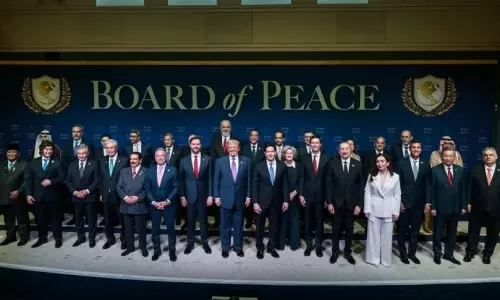
The threat to Imran Khan government
text_fieldsIt is in this background that the joint opposition agitation currently under way against former cricket star Imran Khan's Pakistan Tehreek-e-Insaf (PTI) government and its possible outcome are to be assessed. When PTI came to power in 2018, it had won 116 seats and became the largest single party in the National Assembly, comprising 342 members, 272 of them being directly elected members. The PTI government was made possible by the support of independent members and smaller parties. Right at that time former prime minister Pakistan Muslim League leader Nawaz Sharif had alleged that Imran was counting on army's backing. It was former military chief General Parvez Musharraf who had ousted Nawaz Sharif. Sharif, who was convicted of corruption crimes including those that figured in the Panama Papers, recently flew out to London and got hospitalised there. Now it is his daughter Maryam Nawaz who led the latest Karachi protest rally. The opposition is out on the streets citing unbearable price hikes, indefinite power cuts, closure of business establishments and economic suffering. But the severe blasting of the regime that came from Nawaz Sharif from London clearly indicates that the target of the mass strikes is, rather than Imran Khan himself, the military head General Qamar Javed Bajwa.
It has already been alleged in public that it was a collusion between Imran Khan and the military that led to extension of Bajwa's term until 2022. The opposition is also holding it up against the regime that Pakistan's GDP growth rate nosedived from 1.9 percent of 2019 to 1.5 percent in 2020 and the shooting of inflation to 1.7 per cent. The opposition also accused Imran Khan that he could not do anything to defend the actions of Indian prime minister Narendra Modi in Kashmir or the communal attacks against the minorities in India. Imran counters these by charging that his opposition were working to help India and Modi. The fact that, contrary to experience so far, this time the target is the military, is certain to make matters complicated. Although there are murmurs even within the military against extension of the term of Bajwa, if things get out of hand, India's neighbour is likely to go under the military boot once again. Our government and defence forces should also be watching with vigilance whether the Pak defence chiefs will repeat the misadventure made in Kargil by former military chief General Musharraf in order to divert people's attention from the crisis. More so this time with China also on the prowl for an opportunity.

















